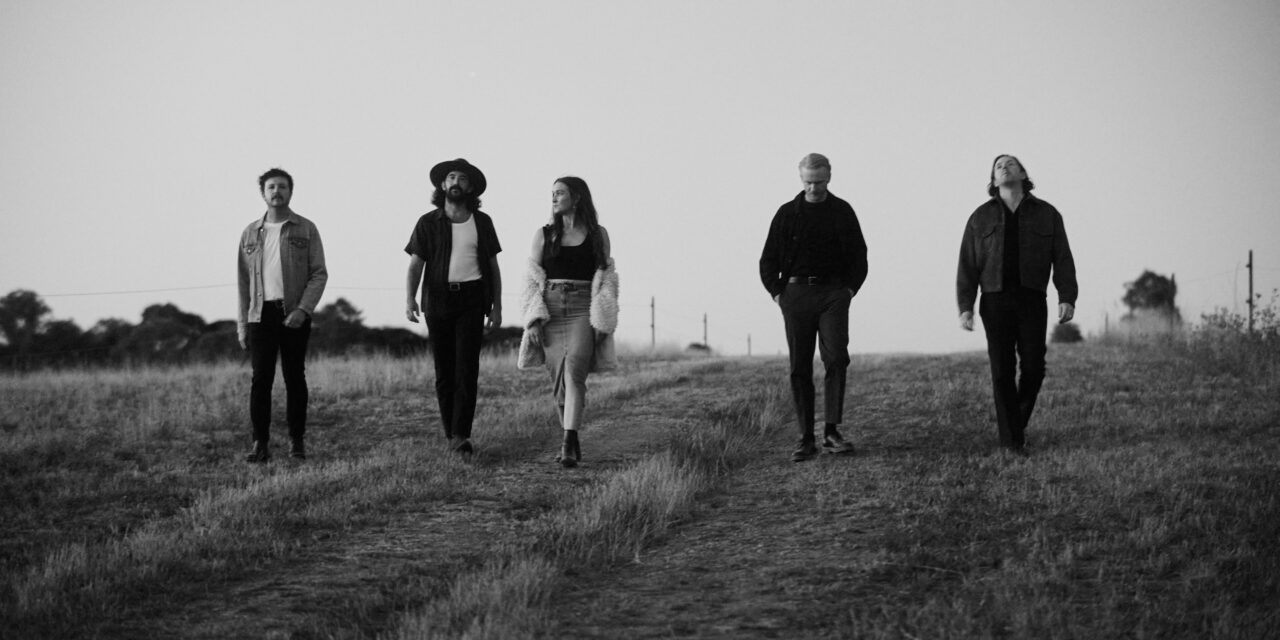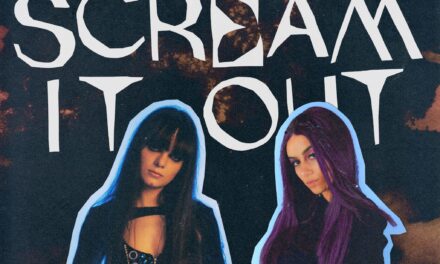For more than 15 years, The Paper Kites have quietly shaped the emotional landscapes of millions. Their songs — carried by tender harmonies, intricate guitars, and cinematic melancholy — have soundtracked everything from heartbreak to healing, appearing in pivotal moments of Grey’s Anatomy, This Is Us, Virgin River, and the everyday lives of listeners around the world. With their seventh studio album, If You Go There, I Hope You Find It, the beloved Melbourne quintet returns with a work that feels like a homecoming in every sense.
Formed in 2010, the band — Sam Bentley, Josh Bentley, Christina Lacy, David Powys, and Samuel Rasmussen — grew from the intimacy of small cafés and handmade CD sleeves into a global indie-folk institution. From the very beginning, their rise was fueled not by hype but by human connection. Fans discovered early tracks like “Arms” and “Bloom” on burned demos passed around between friends — a grassroots spark that eventually ignited into billions of streams and Platinum certifications.
“Bloom” alone has found new life in every era since its 2010 release, amassing billions of views on TikTok and even earning a cover on The Kelly Clarkson Show. As frontman Sam Bentley puts it, “It’s tied up in a lot of people’s lives and memories. It’s been very good to us.”
A Band Returning to Itself
After the ambitious, eight-piece Americana project At the Roadhouse (2023), the new album brings The Paper Kites back to their core identity: five musicians, one heartbeat, and songs that feel honest, unvarnished, and deeply human.
“It’s the five of us again,” says multi-instrumentalist David Powys. “Stripping things back to what feels comfortable and natural… returning to what we know and what we do really well.”
This return wasn’t just metaphorical. Much of the album was written on a friend’s farm in the Yarra Valley — a familiar, dusty, cobwebbed sanctuary where the band often rehearses. The setting, surrounded by paddocks and mountain views, became the album’s spiritual center.
“When I listen to these songs now, it really does feel like home,” Sam explains. “There is this thread of hope and healing through all the music.”
The album’s title itself comes from a phrase Christina wrote on a dusty bus window on the farm: If You Go There, I Hope You Find It — a benediction, a wish, a gentle offering to anyone searching for direction.
Songs Woven From Place, Memory, and Vulnerability
The lead single, “When the Lavender Blooms,” captures the album’s hopeful core with jangling guitars, sunny rhythms, and lyrics that ache with longing and renewal:
I want to put my feet in the ground
Of the place that I found you
Try some good living
When the lavender blooms
Built around ’90s-inspired arpeggiated guitar lines and bright percussion, the track radiates the warmth and optimism that define the record.
Another standout, “Shake Off the Rain,” arrived late in the process — but instantly became the album’s emotional anchor. “Nothing to me sounded more like what I think this band is,” Sam says. “Rain-drenched, but hopeful… quiet but powerful.”
Co-produced with Matt Redlich, the song captures a rare alchemy — the kind you can’t manufacture, only stumble into when a band is playing with total emotional presence.
Elsewhere, the breathtaking “Deep (In the Plans We Made)” was recorded live around a single microphone in one take, the entire room holding its breath as three-part harmonies filled the air.
“When you’re tracking live like that, you’re leaving room for magic,” Sam says. “It’s terrifying, but that’s what vulnerability sounds like.”
Letting Imperfection Breathe
For Bentley, the process marked a shift away from perfectionism and toward authenticity.
“This record is the point where I stopped caring about being totally perfect,” he says. “I cared more about how it felt, and if the soul was there.”
It’s an evolution felt across the album — from the soaring chorus of “Every Town” (which pushed Sam into a higher vocal register) to collaborative songs like “Strongly In Your Arms” and “Change of the Wind,” which showcase the band’s fluidity and trust in one another.
A Band That Grows With Its Audience
The Paper Kites’ story has always been lived on the road. Over the last decade, they’ve performed at iconic venues like London’s O2 Forum and the Fonda Theatre in Los Angeles and shared stages with City and Colour, Stephen Sanchez, Passenger, and Bombay Bicycle Club. They’ve lit up major festivals including Austin City Limits, Calgary Folk Festival, and Bluesfest, while expanding their reach across India, Thailand, and the Philippines — selling out shows and deepening their global connection.
That touring journey continues into 2026, where the band will play their biggest headline shows to date, along with major festival appearances.
A Testament to Growth, Grace, and the Power of Home
After 15 years, seven albums, and a catalog that has quietly threaded itself through the emotional histories of millions, The Paper Kites remain a group defined by curiosity, humility, and heart.
“When I listen to the album, it feels like an honest reflection of who we are,” David says. “There is still a lot of magic to be made.”
If You Go There, I Hope You Find It isn’t just a return — it’s a renewal. A reminder that growth and comfort can coexist, that vulnerability is a strength, and that sometimes the place we’re looking for has been there all along.
“Shake Off The Rain” feels both melancholy and comforting — rain-drenched but hopeful, as Sam put it. What emotional space were you all in when writing and recording this track?
SR: Recording this song was all about the feel. The 5 of us tracked it live in a whole take and while it’s a pretty simple song musically, we took our time to make sure it had the right feeling. It was late afternoon, after a very cold and long day when we played the version on the record. We were relaxed and connected and we knew as soon as we’d played it that it was a keeper.
You mentioned that this song captures “what you think this band is.” What did you mean by that? Has your definition of The Paper Kites sound evolved over time, or does this track feel like a return to your roots?
SR: Our sound has always been evolving, as we as people evolve. We have always wanted to play music that we feel passionate about, and that represents us well as people. This song, I think, represents quite accurately where we are at the moment. This is the kind of music we listen to, and the kind of music we play well together.
The album title If You Go There, I Hope You Find It is beautifully mysterious — where is “there,” for you? Is it a physical place, an emotional one, or something in between?
SR: Perhaps somewhere in between? We are all at a point in life where many of our friends and family are being confronted with some of life’s great challenges. We have lost loved ones, seen cherished relationships fall apart, and by this stage, encountered many hardships. We support those around us, as we also navigate these challenges. The album title speaks to this navigation and wishes hope on the journey ahead.
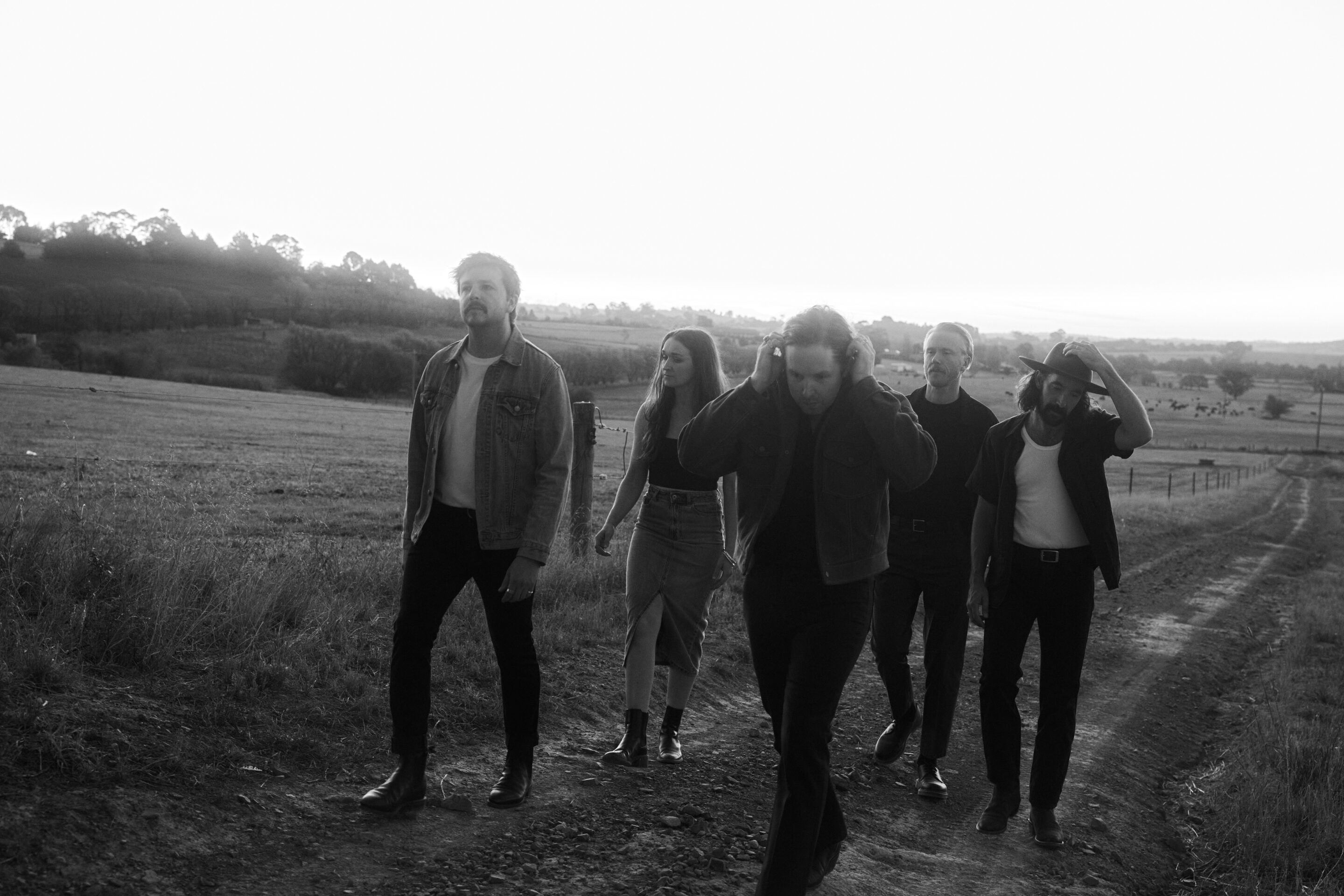
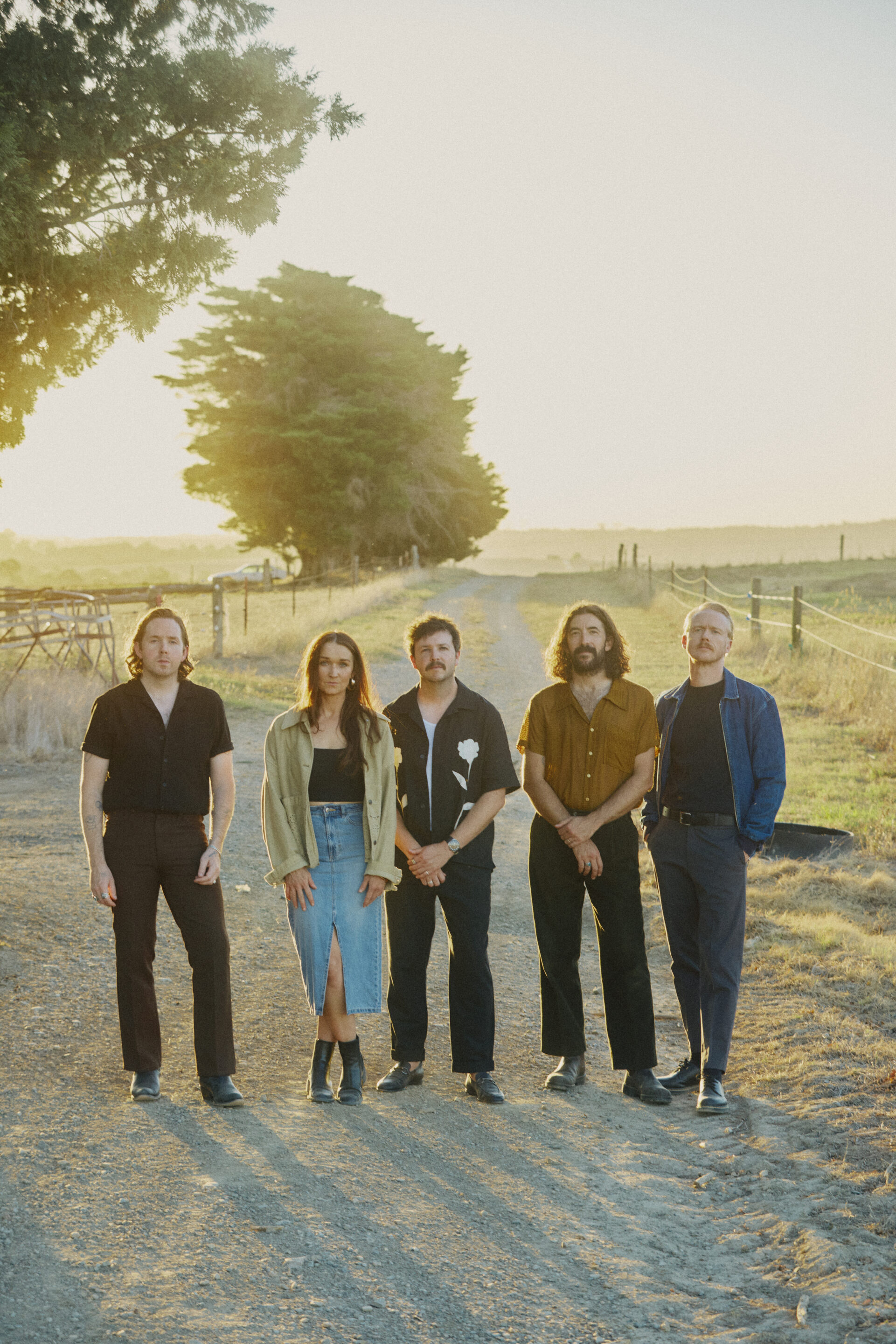
The record was written and filmed on a farm in the Yarra Valley, which already sounds cinematic and introspective. How did that environment shape the songs and the visual tone of the album?
SR: The imagery of the farm is seen on the album cover, as well as in all the music videos for this record. We spend a lot of time there writing and rehearsing. It is a quiet and beautiful place. We’ll often start the day with a coffee, overlooking the fields that are framed by the distant mountain range. We find this setting brings a calm focus that helps us create.
From “Every Town” to “When The Lavender Blooms,” this record feels drenched in nostalgia, nature, and tenderness. How do you balance simplicity and sophistication when writing songs that aim for emotional clarity?
SR: We say it a lot – It’s all about the feel. Years ago we went through stages where we tried to bring musical complexity into everything but these days, I think you could say our songs are pretty simple. Where recording, we always play together and capture whole takes. Usually, the first few takes are ‘correct’ but we may spend hours playing, and replaying the song until it feels right. It’s not about the right chords or timing, but the discussions we have are around things like expression, dynamics, vibe, charm and taste.
You’ve worked again with Matt Redlich and Jon Low — producers and mixers known for detail and warmth. What did they bring to this project that made it different from your previous albums?
CL: We recorded the record at Sing Sing Studio’s in Melbourne with Matt Redlick and we had the pleasure of working with Jon Low for the mixing element. Jon brought a new perspective to the songs as his ears were fresh and he wasn’t a part of the recording process and we all had the best few days in New York with him, getting to know him and his wife, finishing the record and celebrating Dave’s 40th birthday together. I think back on that time super fondly. It was such a pleasure working with him and we loved learning from such a humble and kind person who is also very very good at their job.
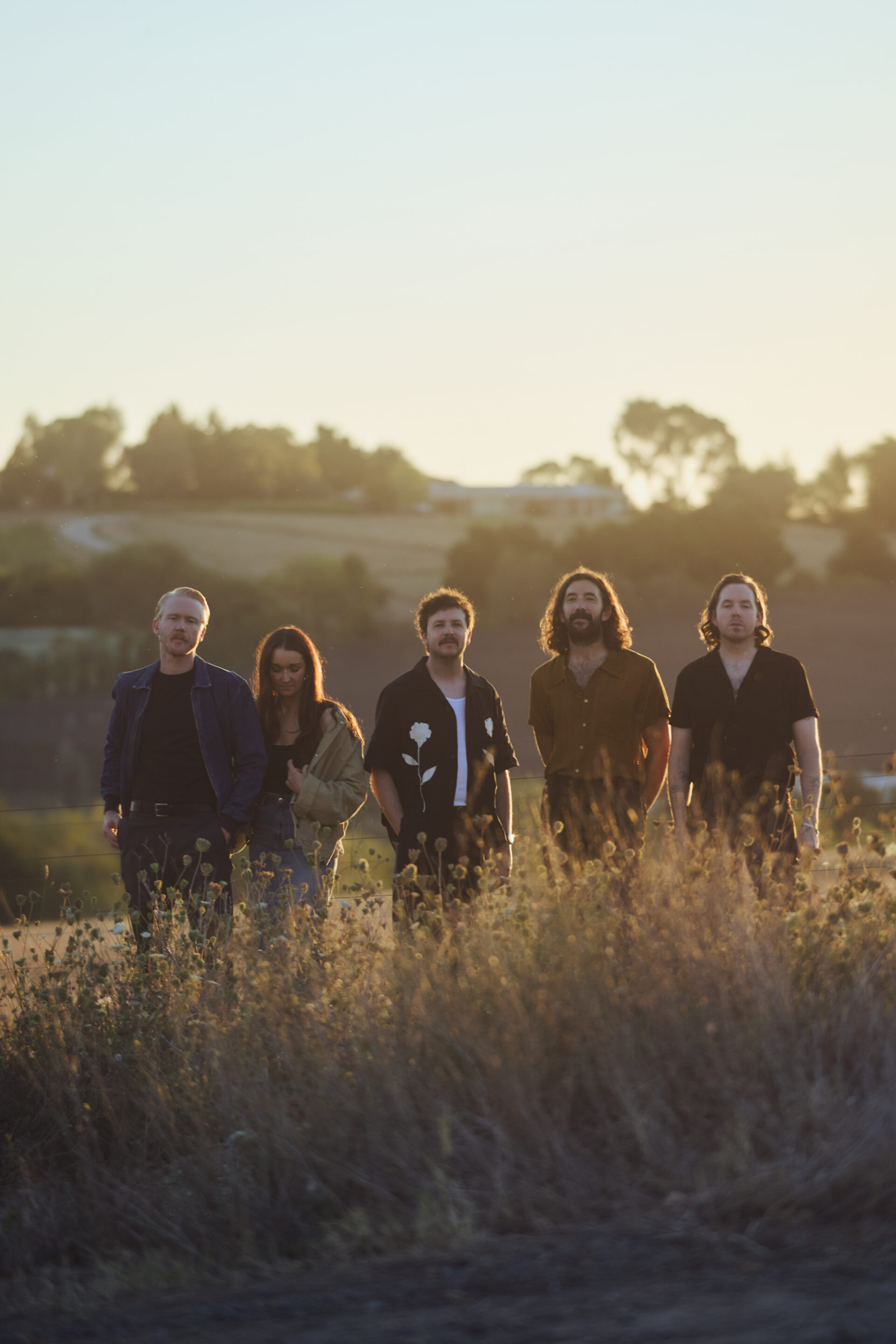
The Paper Kites have always had a cinematic quality to your music — quiet, emotional, deeply visual. How does that visual sensibility influence your songwriting or production choices?
SB – Yeah, I think I’ve been very sort of visually inclined over the years. I know when I was making On the Train Right Home, that record and the sister album On the Corner Where You Live, I had a projector set up in the studio, watching films that I loved, and I’d mute the sound and compose to different scenes. Trying to capture moods and atmospheres.
You’re heading out on an extensive world tour next year, with dates in North America and Europe. How do you translate such intimate, introspective music into large live spaces without losing that personal connection?
CL: I think as our world becomes more digital and connected, yet disconnected, I think we just feel very grateful to be playing live music and creating a space where people can come and hear something real and feel all the feelings that come with experiencing that in a room full of other humans. This record is really special to us and we can’t wait to experience it with everyone who comes to our shows next year.
With over two billion global streams and songs like “Bloom” now part of indie folklore, how do you stay creatively grounded and avoid the pressure to recreate past success?
SB – That EP was 15 years ago now. And the songwriter I am now and the songwriter I was then – this is one of the professions that you really do kind of get better at as you get older. I think we started off very simple, but sort of very safe as well. And as we’ve grown over the years, I think we kind of ended up in this place where everyone’s just a lot bolder in terms of the sounds that we’re able to make. I circle back to just the humanness of it all.
The new album feels like a meditation on healing, change, and the quiet beauty of imperfection. When listeners reach the end of If You Go There, I Hope You Find It, what do you hope they walk away feeling?
SB: I think if you were to ask me what this record feels like to me, it would be five friends, five musicians coming back together and rediscovering what made them want to do this together. This record kind of feels like a band remembering the things that made them fall in love with playing together in the first place. I’m trying to communicate that feeling.

